
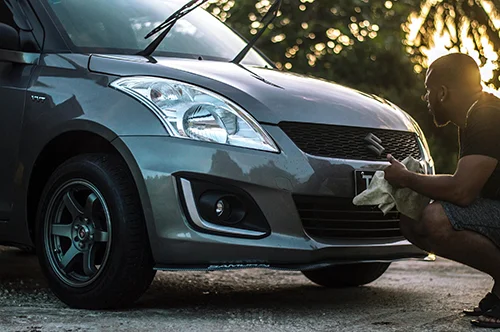
Let's be honest - how long has it been since you got to enjoy the feeling of a clean car seat?
Most drivers clock an average mileage of 20,000 km per year, which means that the typical driver often spends an hour or two behind the wheel daily. Imagine the hundreds of times your car doors have opened, windows been rolled down, and sweaty passengers being carried… nasty, isn’t it?
That’s why cleaning your car interior is crucial in maintaining cleanliness and value. Though it won’t bring back the feeling of a brand-new car seat, it does a good job of improving the air quality and hygiene of your car. Plus, you’re able to save hundreds of dollars on professional detailing by doing it yourself!
How Often Should I Clean My Car Interior?The frequency and intensity of cleaning a car’s interior differ from driver to driver –– rather, it’s dependent on your driving conditions, how frequently you drive, the number of passengers you carry, and how the vehicle is used.
Here’s what you’ll need: a trash bag, dishwashing liquid, disinfecting wipes, paper towel, water, ammonia-free window cleaner or distilled white vinegar, and baking soda. Alternatively, you may want to consider purchasing oxygen-based bleach, upholstery cleaner, or a leather cleaner for a cleaner job. You’ll also need to have these tools on hand: a bucket, duster, old toothbrush, sponge, cotton swab, microfiber cloths, a vacuum with hose attachments, and a garden hose (optional). Sometimes you’ll find it easier to just replace certain parts, like car mats. If that happens, just get a new one at Simply Car Mats. With that being said, let’s break down the different procedures to clean a car’s interior.
Step-By-Step ProcedureBefore attempting to clean your car interior, you should begin by gathering all your rubbish from the cup holders, floorboards, and door and seat pockets. Do remember to remove all additional items left behind in the car –– such as toys, gym bags, car seats, water bottles. If you’re planning on disposing of the rubbish, remember to bring a garbage bag in advance. Remember to don the appropriate safety gear; you don’t want to get your hands unnecessarily dirty, especially if you’re dealing with unpleasant garbage! Additionally, do consider bringing a recycling container along, where you can sort and place all recyclables –– such as cardboard items, plastic bottles, and paper –– into a separate section for recycling.
The floor mats are undoubtedly one of the messiest components of the car and accumulate the most dirt. Before you begin vacuuming, you should remove the floor mats and shake it out to help reveal the grime underneath. Different floor mats would require different forms of cleaning techniques; for example, carpeted mats would need a carpet or upholstery cleaner, whereas rubber, vinyl, or silicone mats only require a good hosing down. This includes creating a soapy water combination of a few drops of dishwashing liquid and warm water, and dip a scrub brush to clean the silicone or rubber mats. Once you’re done washing the mats, leave them out to air-dry before placing them back into the vehicle. Check out our guide to cleaning your car mats for more advice and tips.
Wet a microfiber towel lightly with an ammonia-free window cleaner to get rid of the haze from interior windows. It’s important to use a microfibre towel, as they are specially designed to remove tough stains whilst avoiding streaking. Additionally, choosing an ammonia-free window cleaner is important as ammonia could potentially dry out the plastic in your vehicle and damage the windows.
Start by lowering your windows and cleaning from the top to bottom systematically, to double-check the label of the cleaning product to make sure that it is safe to use.
The center console is often used to hold cup holders, which results in it getting messy and dirty easily. Soak the cup holder in warm water and dishwashing liquid to remove stains, and rinse it with fresh water after. To finish, dry it with a cloth and reassemble the console.
When cleaning the joystick and controls, dampen a clean microfiber cloth slightly with a household cleaner, and work from the cleanest areas to the dirtiest –– for example, you can start with the centre console, before working your way to the gearstick. Hint: use an old toothbrush or damp cotton swab to reach every nook and cranny!
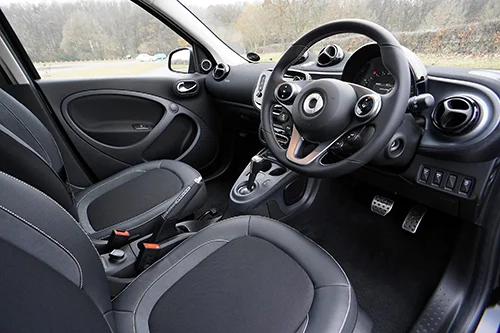
One trick is to use a duster to remove the majority of the dirt from the dashboard, and use cotton swabs to reach the tight spaces around the vents and knobs. Similarly, use a damp microfiber cloth with a household cleaner to wipe down the door panels, and make sure to not leave residue behind. In both cases, it’s good to repeat the cleaning process by going over the cleaned areas with another damp, clean microfiber –– this helps to pick up any residual grime and remove fingerprints.
Use a clean microfiber cloth or disinfecting wipes to wipe down the steering wheel and gear shift knobs. If you have trouble removing stains, consider switching to cotton buds to reach tight corners. It’s important to change to a clean cloth every once in a while, as you might be transmitting the mess you’ve cleaned up to the next person.
Your cleaning method is dependent on the texture of your car seat, as different materials require specific forms of care. For example, to avoid cracking, leather car seats require a vacuum crevice tool and an appropriate cleaner (eg. saddle soap) to remove dust and grime. Alternatively, you can consider conditioning the seats to restore its shine and suppleness.
To clean heavily-stained cloth car seats, you’ll need to have an appropriate upholstery cleaner or know specific strain treatment methods. Dye-based stains, such as Kool-Aid, can be removed by a combination of water and oxygen-based bleach. Rub the paste into the stained area and leave it for an hour –– the stains should be (almost) fully removed! After removing all the stains, use a scrub brush to apply cleaner to the fabric, and wipe it again with a damp microfiber cloth.
Don’t forget to clean your seat belts as well! Wipe the fabric straps with an upholstery cleaner to remove external dirt, and use a microfiber cloth to clean the metal fasteners and molded clasps.
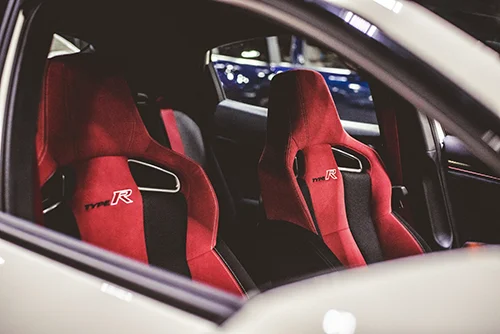
We’re almost there, so hang on! Make sure that you all have the required items: upholstery nozzle, crevice vacuum cleaner tool, and a dusting brush. Each part of the car would require using different cleaning technologies –– for example, upholstered areas (eg. ceiling, seats) require the upholstery nozzle. By saving this to the last, we’re able to focus on getting rid of all the debris from the previous tasks. However, if there are large stains prevalent on the carpet, we can begin by searching where the commercial carpet cleaner is advised.
Did you know that you’re able to control odours, just by combining baking soda and activities charcoal in a sealed plastic container? You’ll only need to change the containers monthly, and ensure that there are slits in the lid, and place it below the seats. Otherwise, you can opt to sprinkle the car seats and carpet with dry baking soda to get rid of any stale or stuffy odour. Let these substances sit in the car overnight before vacuuming it away; you’ll soon observe a big change in terms of odour!
ConclusionFor regular drivers, a good clean every six to eight months is sufficient enough to maintain the ‘new’ look and feel of a vehicle. However, first-timers should beware –– be prepared to take a significantly longer time, especially if it has not been cleaned in a while.
One man’s car is another man’s scenery, hence having regular vehicle maintenance can help to increase its resale value by hundreds and thousands of extra dollars in the future.
Basic Tips For Boot Liners And 10 Best Boot Protectors For Dogs Info 03-Feb-2021 Introduction
If you are new to the car accessories world, Car boot Liners are essentially a basic item you need when you first get your car. You do not need to pay special attention when choosing one but going for the most suitable one right off the bat can save you monetarily, and can do a better job at protecting your car in the long run.
Next, we will be going through what makes a decent boot liner.
1. Material & ConstructionTo understand the basic function of boot liners, they are there to help protect the carpet in your car boot, as well as the loots you are carrying. Without an adequate boot liner, your boot liner may not hold its shape when heavy cargo is transported into the car. Therefore, a decent boot liner will need to be manufactured using a strong and durable material. Examples are rubber and or high-level plastics such as TPE. Having a strong boot liner can also prevent any spillage when you are taking it out to clean.
It should also be versatile enough such that you can roll it up and fit it into a smaller storage space when not in use.
2. FeaturesFeatures that make a befitting boot liner includes having a good grip, which prevents cargo from slipping and clanking around the boot when your car makes sharp turns. The best kind of boot liner warrants you a hundred per cent anti-slip surface. When choosing boot liners, keep a lookout for those with a slightly tilted edge as they will hold spills better. You can also take it a step further and go for a liner that is entirely resistant to chemical and or fuel spills. A boot liner should lastly be UV resistant, as this will protect the car when it is left under direct sunlight for a long time.
3. Fitting & InstallationIt is best to get a liner that fits your vehicle’s dimensions just nicely. Tailor boot liners are ultimately constructed to follow the outline of your car boot and this will give a 100% snug fit. Installation for such boot liners simply includes rolling the boot liner in the car boot. Do take note to go for the least complicated liner, as complications will only drag out the installation process.
4. WarrantyAs with all products, having a warranty on any product means that the item is of good quality. Boot liners that typically come with a two-year warranty are the ones you should look for. For additional assurance, boot liners can be warrantied up to 10 years. The longer the warranty is, the more worth the liner is.
Next, we will be moving onto the top 10 boot protectors for dog lovers with pets.
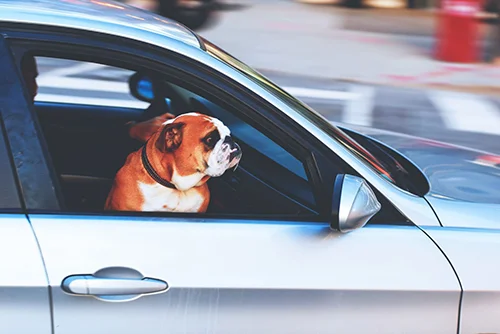 1. Bishopstone Pets Car Boot Liner
1. Bishopstone Pets Car Boot Liner
This car boot with a padded cover suits the typical SUV and small pickups. Besides featuring a long bumper protector that helps to shield dog scratches, it is also secured together firmly by velcro strips. The durable and lightweight aspect of this car boot is the highlight, whereby it makes for easy installation and removal.
2. Zellar Car Boot LinerA bonus regarding the Zellar is that rather than being generic and fitting every type of car available, it is produced in a variety of four sizes to best suit your car dimensions. It clips to the car near the rear headrests and provides comfort with its moisture-resistant fabric. it also comes with an 18-month warranty to alleviate your worries about quality.
3. Digiflex Water Resistant Car Boot LinerWhen it comes to affordability, this one takes the cake. Featuring one of the most reasonably-priced boot liners in the industry, this boot liner does its job decently with minimum flair. It is easily available in one size and made from a strong and waterproof material. It also includes an extra flap that can provide extra protection to the rear bumper.
4. Me & My Pet Car Boot Protector MatThis particular product has gathered high ratings from consumers and just by looking at the design, it is not a surprise why it is so highly raved. Rather than showcasing the glossy waterproof material most boot liners will feature, this one has more of a carpet-like feel to it. However, it is guaranteed to be equally resistant to dirt and simple to clean too.
5. Sakura FERSS4612 Boot Liner and Bumper ProtectorThis boot liner acts as a simultaneous bumper protector with the remaining part of the material. Featuring the common traits of a water-resistant liner, it hinders your bumper from getting wet and dirty paws all over it.
6. WEIJIGUOJI car boot linerDespite the hard to pronounce name, this boot liner has made a name for itself when it comes to the basic functions of a boot liner. This liner also comes with adjustable straps such that it can fit an array of vehicles well enough. It also comes with a pet-friendly clip to ensure your pet travels safely and securely while seated in the boot.
7. Pettom Water Resistant Car Boot LinerPettom’s boot liner has been upgraded to give your vehicle only the highest level of protection. Made from a material plush and durable enough, it features a non-slip surface beneath, which prevents movement within the cargo area. There is also an excessive flap of material that can double up as a bumper protector when on the go.
8. Focuspet Dog Car Seat CoverEven though the name suggests that it is solely a car seat cover for dogs, this product is essentially manufactured to protect your car boot in many ways. Made of the typical Oxford fabric, this car seat presents waterproof functions as well as a non-slip backside to secure it in place. As a bonus, it is smartly created to operate even with all the backseats folded, for maximum dog-carrying storage.
9. LIVIO boot liner and rear seat protectorA cheap and aesthetically pleasing product featuring blue trimming, this product works best with larger cars. For easy keeping, it can also be conveniently rolled up and you are getting a product worth the money.
10. Hardcastle Water Resistant Heavy Duty Car Boot LinerLast but not least, we have another multi-purposeful boot liner specially manufactured for dog lovers. This item is also made of the popular Oxford fabric but adds on fancier knick-knacks in its installation. Security is one thing it measures up to as it comes with zips, ties, and velcro fastenings.
 Conclusion
Conclusion
For all dog lovers out there, you will be pleased to find that you can now bring your dog everywhere with you without worrying much about the aftermath. For first-time car owners, hopefully, you have gained some useful knowledge on what a boot liner does and why it is an essential purchase.
How To Select The Right Car Mat Info 07-Dec-2020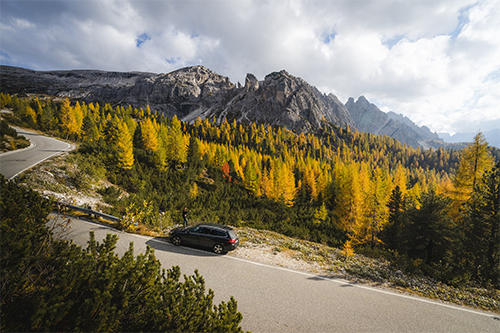 The Right Car Mat For You
The Right Car Mat For You
If you’re a car owner, you may find your car dirty no matter how often you clean it. From food crumbs to drink spillages from the toddlers to pet hair, messes eventually occur in your car, leading to an accumulation of dirt and grime over time. To keep your car’s interior looking at its best, a car floor mat is a must-have item. Car floor mats can be easy to maintain by removing them for cleaning before replacing them in the car.
The car mats not only protect your car floor from all sorts of dirt and grime but also adds to safety as items placed within are less likely to slip around should an anti-slip mat be used. The mat of your choice should also be durable and comfortable enough for daily use. With so many different options available on the market, and with choices ranging from floor mat material to the design, style and price, we give you an overview of some of the best mats available. If you need a floor mat for your car, Simply car mats has your back. For the best fit, enter your car reg and we will tell you the right mats for your car.
Points to ponder before committing to a mat How many mats do you need?It is usually the norm for floor mats to come in a set of two, four or five mats, with the former costing the least. Floor mats which come in a set of four are the most commonly available, with two mats for the front and two for the passenger sitting area behind. For mats which come in sets of five, the last mat is meant for the trunk of an SUV or truck. Keep these in mind when deciding how many mats you need to purchase.
Mat MaterialCarpet floor mats undoubtedly look nicer and more sophisticated than their rubber counterparts but are also more prone to wear and tear. Though the former option absorbs smell and grime, the latter is easier to clean and maintain as dirt and grime stay on its surface. Also, rubber mats look new for a longer period of time as compared to the more trendy carpet mats.
The fit of the matAs their name suggests, universal car floor mats are meant to fit within most standard vehicles. They are often cut smaller than the intended area of protection and hence may not fit your car like a glove. On the contrary, custom mats are designed to perfectly fit your vehicle model. As they fit the entire surface properly despite the presence of wheel mouldings or other interior design features, it should come at no surprise that they are also more costly.
ColourThe usual method is to purchase a floor mat which matches the interior colour of your vehicle’s fittings. However, there are also other ways to approach this. With textures or eye-catching designs available, it is worth considering if you prefer car floor mats which blend in or which pop out to catch attention.
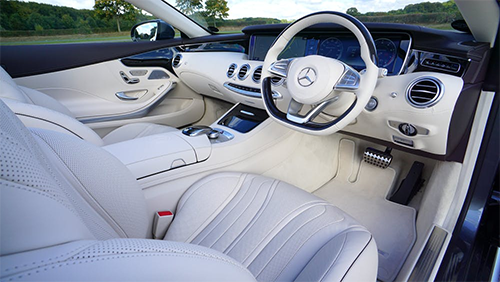 Best Car Mats You Can Get
Best Car Mats You Can Get
Now that you have some of these tips in mind, read on to find out four of the best car mats available:
 Frequently Asked Questions
Frequently Asked Questions
Gone out to buy yourself a mat already? Perhaps you’re still on the fence? Here are some FAQs you may have about your newest purchase:
That is probably the rubber from your car mats. Rubber mats usually have a chemical odour which ought to lessen as time passes. Air out your mats in an open area for faster dissipation of the odour.
You could do that, but it might lead to more spending in the future if you need to fix your car’s interior due to scratches, spills or rusting which can occur.
Congratulations! You now know everything there is to know about the importance of car floor mats and how to choose one that suits your needs. Run down to your nearest automotive shop and grab one today!
Floor Mats For Your Car: How They Can Help You Info 02-Nov-2020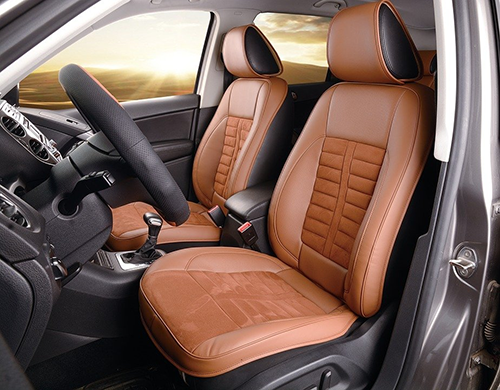 Benefits Of Using Car Mats
Benefits Of Using Car Mats
Your car was probably expensive, so it makes sense that you would want to keep it in top condition. An often overlooked aspect of car interiors is the surface of the interior. Damages and dirty carpets are common if you don’t protect your car with car mats. With various types of floor mats available in the market for cars to protect the interior of your car, we bring you an overview of the types available and which might suit you best. Simply Car Mats is your solution for keeping the floor of your car clean and damage-free.
Having floor mats are essential to relieving you of the stress of scratches or dirt that make your car look old and grimy. Keeping that in mind, it is important to choose a mat that is able to withstand some wear and tear whilst keeping your car protected.
Car mats are designed for various purposes, so you need to ensure that the mat you choose is suited to your needs while remaining affordable. For instance, if you need a mat to protect your car from incline weather conditions, then a car mat that is waterproof might be your mat of choice, as opposed to an anti-slip mat more suited to trucks or vans which keep the goods they are transporting in place.
The most important tip when choosing a car mat isn’t its design, size or shape. Instead, it is important to select one that can be easily installed or removed. It is common to only use car mats for the sitting areas, however; you should consider using floor mats in the car boot to keep goods inside from sliding around, while at the same time protecting your car from scratches that may be caused through wear and tear.
Types of Floor Mats Available on the MarketCar mats are usually made of heavy-duty material such as rubber or plastic which are sturdy and can be used for various purposes. The more common types of material used for floor mats are seen below.
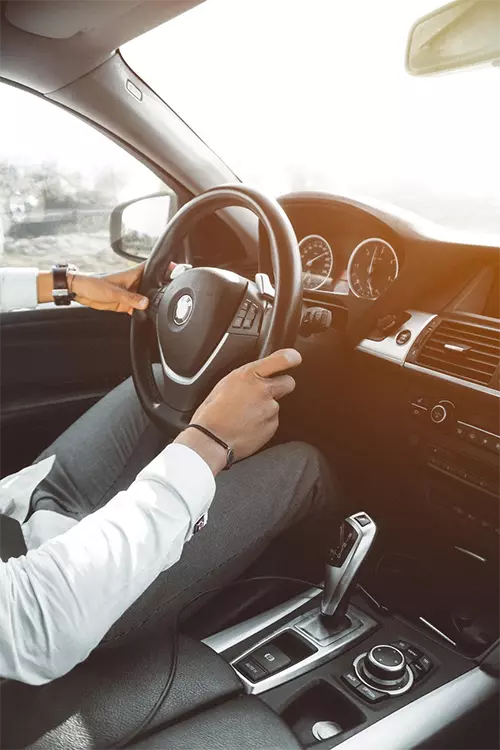
 Conclusion
Conclusion
We can’t stress enough the importance of car mats in keeping your car’s interior protected. Keep an eye on prices while you choose one that suits your needs best.
Being in an area of high footfall, floor mats are bound to be subjected to damage. It is hence important to maintain them regularly and replace them over time. Maintenance is the secret to a long-lasting mat.
Now that you know more about the various car mats available, don’t wait any longer! Go get one today!
Page 2 of 2
Newer